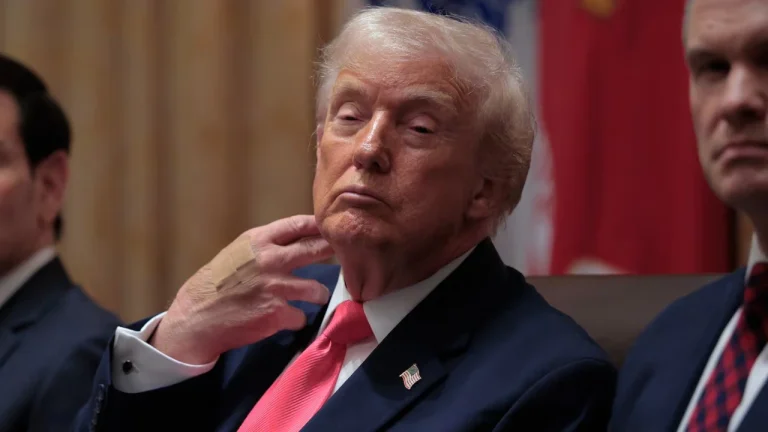A New Housing Proposal on the Table
The Trump administration is reportedly working on a long-term solution to America’s growing housing affordability crisis: a proposed 50-year mortgage. Federal Housing Finance Agency (FHFA) Director Bill Pulte announced Saturday that the agency is developing plans to allow homebuyers to extend mortgage terms to half a century, a significant departure from the traditional 30-year model that has dominated U.S. housing for decades.
“This is a complete game changer for improving housing affordability,” Pulte said during a press briefing. “We are exploring every option to help Americans buy homes without the financial strain that has made homeownership increasingly out of reach for millions of families.”
Trump’s Renewed Focus on Affordability
President Donald Trump has made housing affordability a recurring topic in public statements, particularly following the Republican Party’s midyear election losses in 2025, which Democrats partially attributed to messaging on economic issues.
Over the weekend, Trump posted a graphic on social media comparing himself to former President Franklin D. Roosevelt. Titled “Great American Presidents,” the image labeled Roosevelt’s 30-year mortgage alongside Trump’s proposed 50-year mortgage, underscoring the administration’s intention to expand homeownership accessibility.
Trump has repeatedly described the current housing market as a “con job” and has focused on policy measures to reduce costs and increase the availability of homes nationwide. His administration’s strategy mirrors past federal initiatives, like Roosevelt’s New Deal, which sought to expand access to affordable housing during the Great Depression.
Historical Context: Roosevelt and the 30-Year Mortgage
The 30-year mortgage, often credited to Roosevelt’s New Deal reforms, became a cornerstone of U.S. housing policy. The program was designed to stabilize the housing market during a period of extreme economic instability, providing long-term loans supported by the federal government.
Trump’s proposed 50-year mortgage echoes that ambition but extends repayment periods beyond current norms, allowing for significantly lower monthly payments in theory. This could, proponents argue, make homeownership more achievable for first-time buyers and middle-income families.
Criticism from Within the GOP
However, not all Republicans are on board with the idea. Critics warn that longer mortgage terms could come with unintended consequences, particularly when paired with high interest rates.
Rep. Thomas Massie (R-KY) highlighted the math behind the plan, cautioning that early payments would barely reduce the principal balance. “After paying on a home for 5 years, if the rate is 7% on a 50-year mortgage, you will have paid only 1.3% of the principal,” Massie wrote on X, emphasizing the risk of long-term debt accumulation and defaults.
Rep. Marjorie Taylor Greene (R-GA) also expressed skepticism, arguing that extended mortgages would largely benefit banks and mortgage lenders while placing homeowners in perpetual debt. She suggested alternatives, such as leveraging strong rent payment histories to qualify buyers for conventional loans and eliminating federal capital gains tax on primary residences.
Other conservatives, including Laura Loomer and Matt Walsh, recommended that Trump focus on immigration or wage policies rather than extending mortgage terms. Conservative commentator Meghan McCain criticized the proposal as a “debt-for-life” approach and suggested addressing affordability through wage increases and cost reductions instead.
Potential Benefits and Risks
Proponents of the 50-year mortgage argue that spreading payments over a longer term could lower monthly obligations, enabling more Americans to purchase homes in high-cost markets. For younger buyers and first-time homeowners, such a plan could offer a pathway to ownership that is otherwise inaccessible.
Critics, however, point out that the longer the repayment term, the higher the total interest paid over the life of the loan. Borrowers could also face reduced mobility, as carrying debt for half a century may limit the ability to move for better employment opportunities or education.
Financial analysts have noted that while the plan is ambitious, it would require careful regulation to ensure that lenders do not exploit extended terms and that borrowers are protected from predatory practices.
Next Steps for the Administration
FHFA Director Pulte confirmed that the agency is “actively working” on policy frameworks, including underwriting standards, eligibility criteria, and risk mitigation strategies for lenders. He described the initiative as part of a broader affordability strategy that also includes increased housing supply and targeted subsidies.
The administration has yet to release a formal timeline for implementation, but officials suggest the proposal could be introduced as early as 2026 if approved. Stakeholder feedback from banks, housing advocacy groups, and state governments will likely influence the final design of the program.
Political Implications
The move comes amid a politically charged atmosphere where housing affordability has become a major talking point across party lines. Republicans have criticized the Biden administration for failing to address housing costs, while Democrats have emphasized rent control and social programs as their solutions.
Trump’s proposal represents an attempt to appeal to voters frustrated with rising home prices and the limited availability of affordable homes, potentially reshaping the national debate on housing policy.
Conclusion: Innovation or Controversy?
As the administration continues to develop the 50-year mortgage concept, questions remain about feasibility, market impact, and political reception. While the plan could offer a lifeline to prospective homeowners, opponents warn that it could create new financial risks and entrench debt for decades.
For now, the proposal is being closely watched by economists, political observers, and potential homebuyers alike. If implemented successfully, it could redefine the U.S. mortgage landscape. If mishandled, it could become a cautionary tale about ambitious policy experiments in the housing market.
The coming months will reveal whether this bold plan translates into real change or remains a controversial talking point.

James Jenkins is a celebrated Pulitzer Prize-winning author whose work has reshaped the way readers think about social justice and human rights in America. Raised in Atlanta, Georgia, James grew up in a community that instilled in him both resilience and a strong sense of responsibility toward others. After studying political science and creative writing at Howard University, he worked as a journalist covering civil rights issues before dedicating himself fully to fiction. His novels are known for their sharp, empathetic portraits of marginalized communities and for weaving personal stories with broader political realities. Jenkins’s breakout novel, Shadows of Freedom, won national acclaim for its unflinching look at systemic inequality, while his more recent works explore themes of identity, resilience, and the fight for dignity in the face of oppression. Beyond his novels, James is an active public speaker, lecturing at universities and participating in nonprofit initiatives that support literacy and community empowerment. He believes that storytelling is a way to preserve history and inspire change. When not writing, James enjoys jazz music, mentoring young writers, and traveling with his family to explore cultures and stories around the world.









